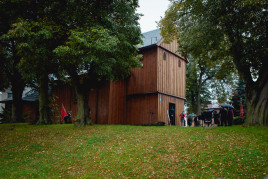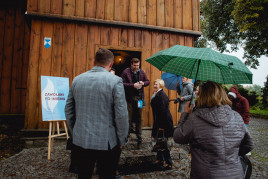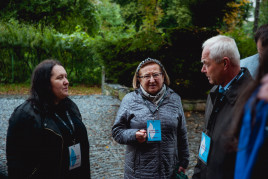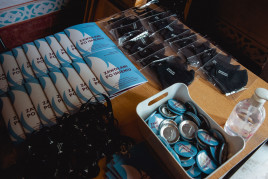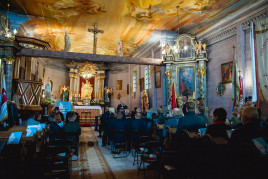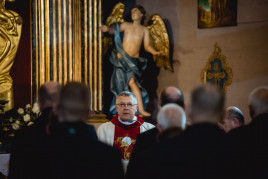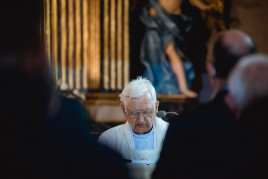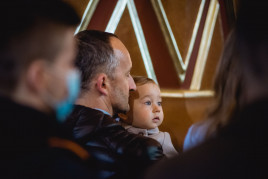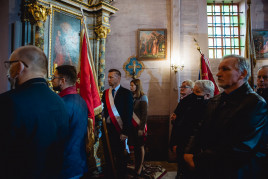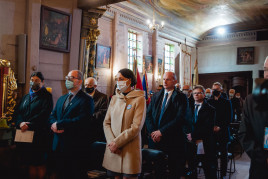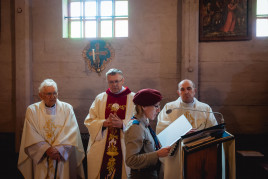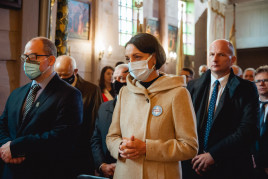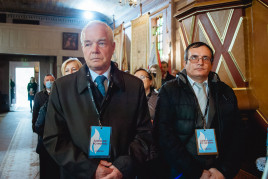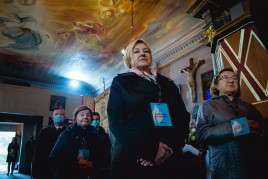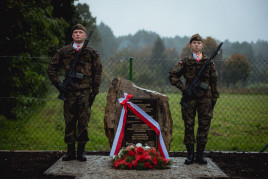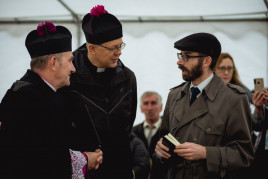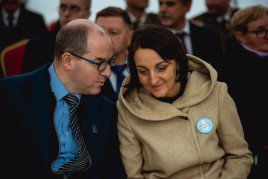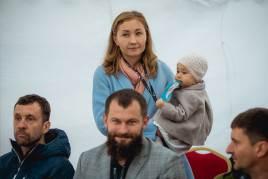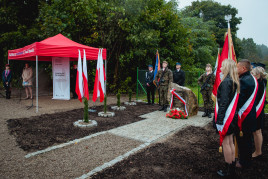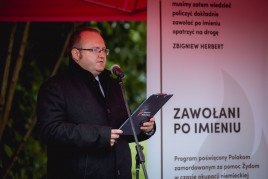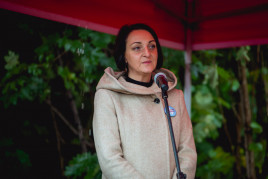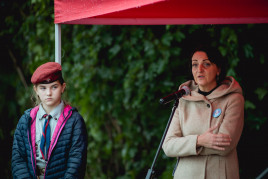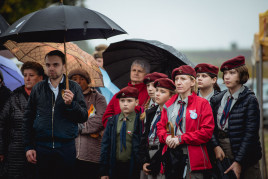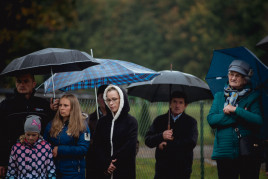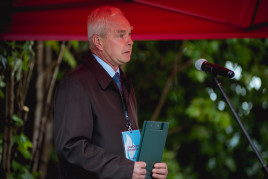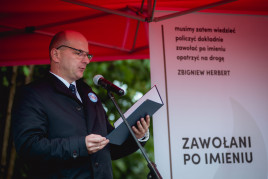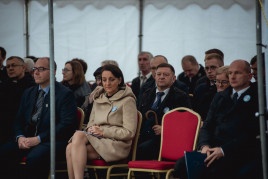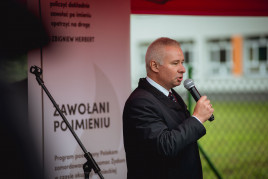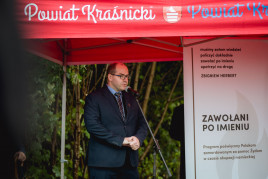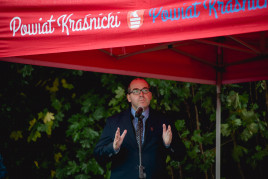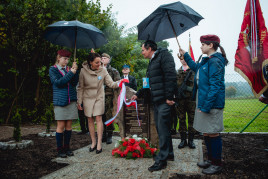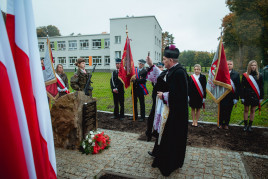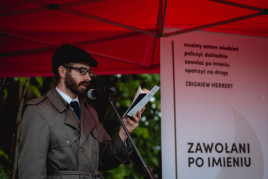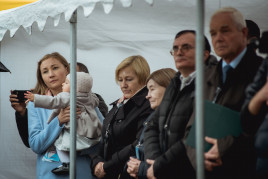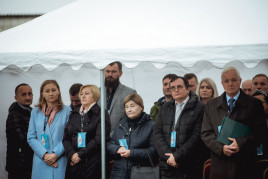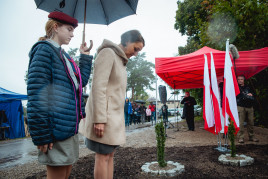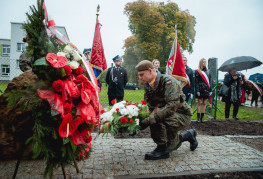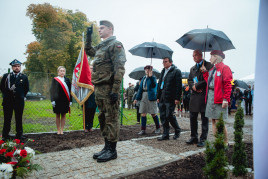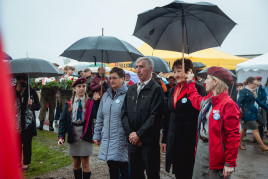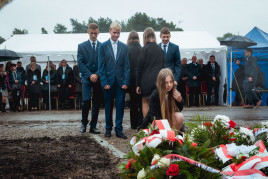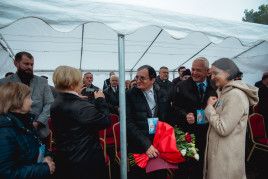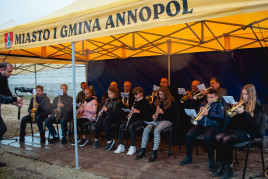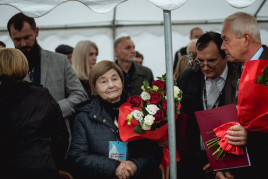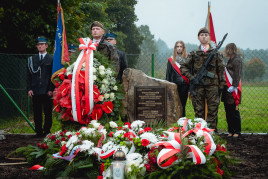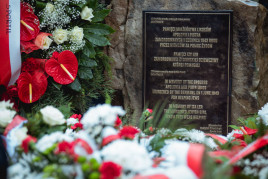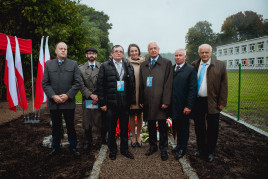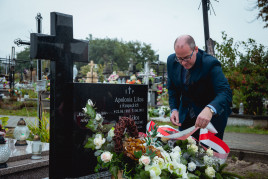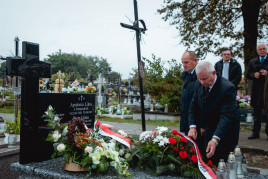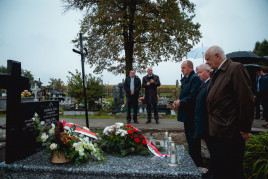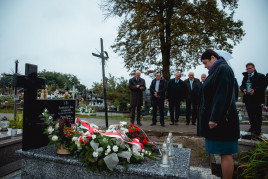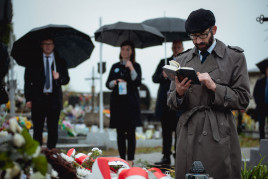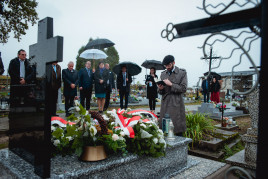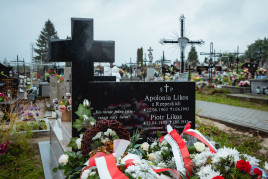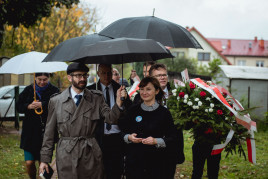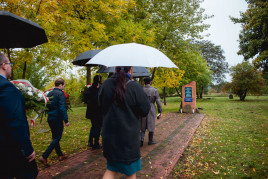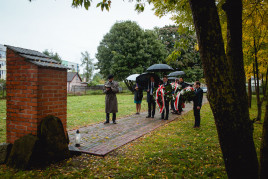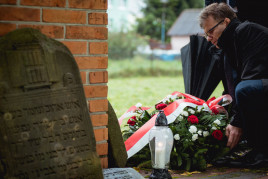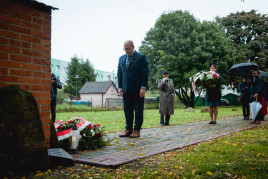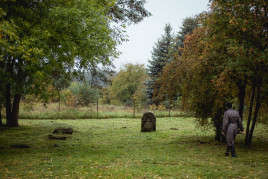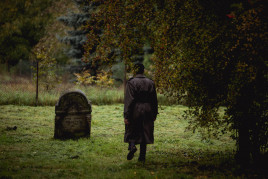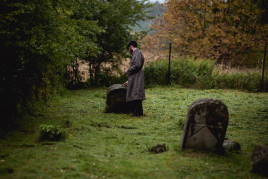Apolonia and Piotr Likos commemorated in Opoka Duża - Instytut Pileckiego
Apolonia and Piotr Likos commemorated in Opoka Duża
The Pilecki Institute has commemorated Apolonia and Piotr Likos, who were murdered for helping Jews during the German occupation, and Iza Ler, the Jewish woman they aided.
Apolonia and Piotr Likos and their daughter Natalia lived in Opoka Duża near Annopol. Despite the death penalty imposed on anyone who aided Jews during the German occupation, the Likos family helped Jewish fugitives from the ghetto by providing them with food and clothing. Over time, they hid a dozen or so Jews on their farm, including members of the Brener, Chyla, and Kestenbaum families, as well as Estera Zakalik and Iza Ler.
The Likos family – Piotr, his wife and child (Natalia) – helped us with food and clothing. The Likos family took us all in in 1943. We were all sick at the time – gastroenteritis and dysentery. At first, we stayed in their house, and then in the pigsty and the attic above the stable… At the same time, one of the Lerr daughters from Annopol joined us. There was a rumor that there was going to be an ambush on Likos’ house. We managed to escape into the woods. Likos, his wife and Lerr’s daughter were killed.
From the testimony of Jacob Kestenbaum, who was rescued by the Likos family, July 12, 1991
Following a denunciation, the Germans arrived at the Likos farm on the morning of 1 June 1943. First, they shot at the buildings from outside, then they entered the house and captured Piotr and Apolonia, as well as the Jewish woman Iza Ler. They brutally beat Piotr and then shot all three of them. The remaining Jews escapes to the forest. The farmers’ daughter, Natalia, only 14 years old at the time, also managed to escape from the house. For a time, Natalia lived with her aunt and uncle, but they refused to take her in because of the charges against her and the threat of a death sentence. After the war, she returned to her hometown, but her house had already been completely destroyed by the eastern front. She finally settled in Annopol, where she received support from Jewish families her parents had aided. Most of them, with the exception of several members of the Brener family, managed to survive the Holocaust and emigrate to the West in the following years.
After the end of the occupation, the bodies of Apolonia and Piotr Likos were exhumed and buried in the cemetery in Annopol. The location of the remains of Iza Ler remain unknown.
On 27 October 1993, Piotr and Apolonia Likos and their daughter Natalia were awarded the title “Righteous Among the Nations” at the request of the Kestenbaum family. Natalia Likos died on 22 August 2004.
The Pilecki Institute commemorated Apolonia and Piotr Likos on 30 September 2021.
“This is the 21st ceremony and the 50th and 51st people commemorated in a project implemented by the Pilecki Institute in consultation with local partners. As part of its activities, the Institute “calls by name” the forgotten victims, restoring them to a community of families, local areas and the national memory”, said Dr. Anna Stróż-Pawłowska, head of the “Called by Name” Department of the Pilecki Institute.
The ceremony began with a Holy Mass in the Church of St. Joachim and Anne in Annopol, concelebrated by Father Krzysztof Krzemiński, Father Prof. Andrzej Rusak – director of the Diocesan Museum in Sandomierz, and Senior Canon Antoni Bezpalko.
A plaque commemorating Apolonia and Piotr Likos was unveiled in Opoka Duża jointly by Krzysztof Likos, grandson of the “Called by Name”, and Prof. Magdalena Gawin, Deputy Minister of Culture, National Heritage and Sport and initiator of the program. The location of the commemorative stone was consecrated by parish priest Krzysztof Krzemiński. On behalf of the Jewish community, the El Malei Rachamim prayer for the deceased was recited by Rabbi Yehoshua Ellis.
“The event that took place on 1 June 1943 was a burden and a source of lifelong trauma for our mother, who witnessed the murder of her own parents. My mother managed to escape through a window at the last minute, despite the shots that were being fired in her direction. For several weeks she hid in the thickets on the banks of the Sanna River. She never returned to her family home because the entire farm was burned down. Today, only a pile of rubble remains where the buildings once stood. The fact that my mother was unable to talk about these events for many years is testament to how difficult they were for her. We are proud and grateful that the Called by Name project includes people who are wholeheartedly devoted to work thanks to which our ancestors have been written down in the pages of history and will remain in our hearts and memories for a long time”, said Krzysztof Likos, grandson of Apolonia and Piotr Likos and son of Natalia.
Prof. Magdalena Gawin, Deputy Minister of Culture, National Heritage and Sport, and initiator of the “Called by Name” project, noted the exceptional courage of the Likos family: “We are here to remember. From now on, Opoka Duża and the surrounding villages will be able to come here, lay flowers, light a candle, lay a stone and remember those terrible years, which must be a great warning against hatred (…). The Likos family risked their lives to protect others. We all care for loved ones – parents, children, families. Only exceptional people can put their lives and the lives of others on the line and say ‘We will take the risk; we may die together’. Their death reminds us of the price of the aid they provided.”
As Dr. Wojciech Kozłowski, director of the Pilecki Institute, said: “The crux of the ‘Called by Name’ project also represents a great effort to ensure that the anonymity to which these people were condemned is overcome. Today we are restoring the dignity of Apolonia and Piotr Likos and Iza Ler. They are no longer anonymous. (…) The decision to help Jewish people during the Second World War was a decision made with every new day: ‘Yes, I want to help. Every day the greatest punishment may fall on me.’ It is an example of perseverance and great fortitude. An example of compassion for another human being.”
The commemoration also provided an opportunity for intergenerational meetings. The youngest participant was 11-month-old Natalka, great-great-granddaughter of Apolonia and Piotr Likos. The ceremony was attended by the family of the commemorated individuals and the local community, as well as by the hosts and co-organizers of the event: Andrzej Roll, the starost of Kraśnik, and Mirosław Gazda, the mayor of Annopol.
After the ceremony, the family, the hosts, Rabbi Yehoshua Ellis and the directors of the Pilecki Institute, Dr. Wojciech Kozłowski and Anna Gutkowska, laid flowers on the grave of Apolonia and Piotr Likos, and then at the monument to Holocaust victims in Annopol.
